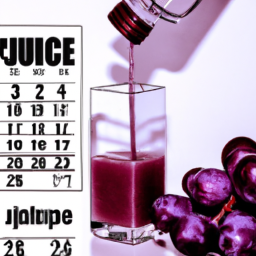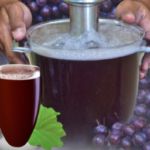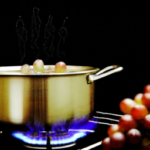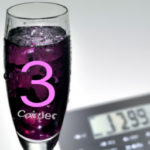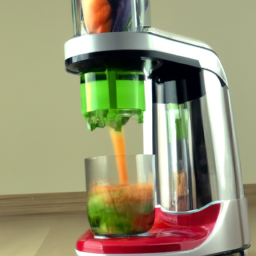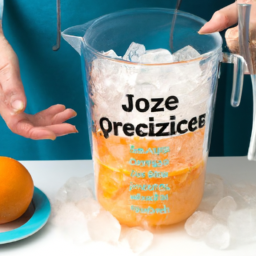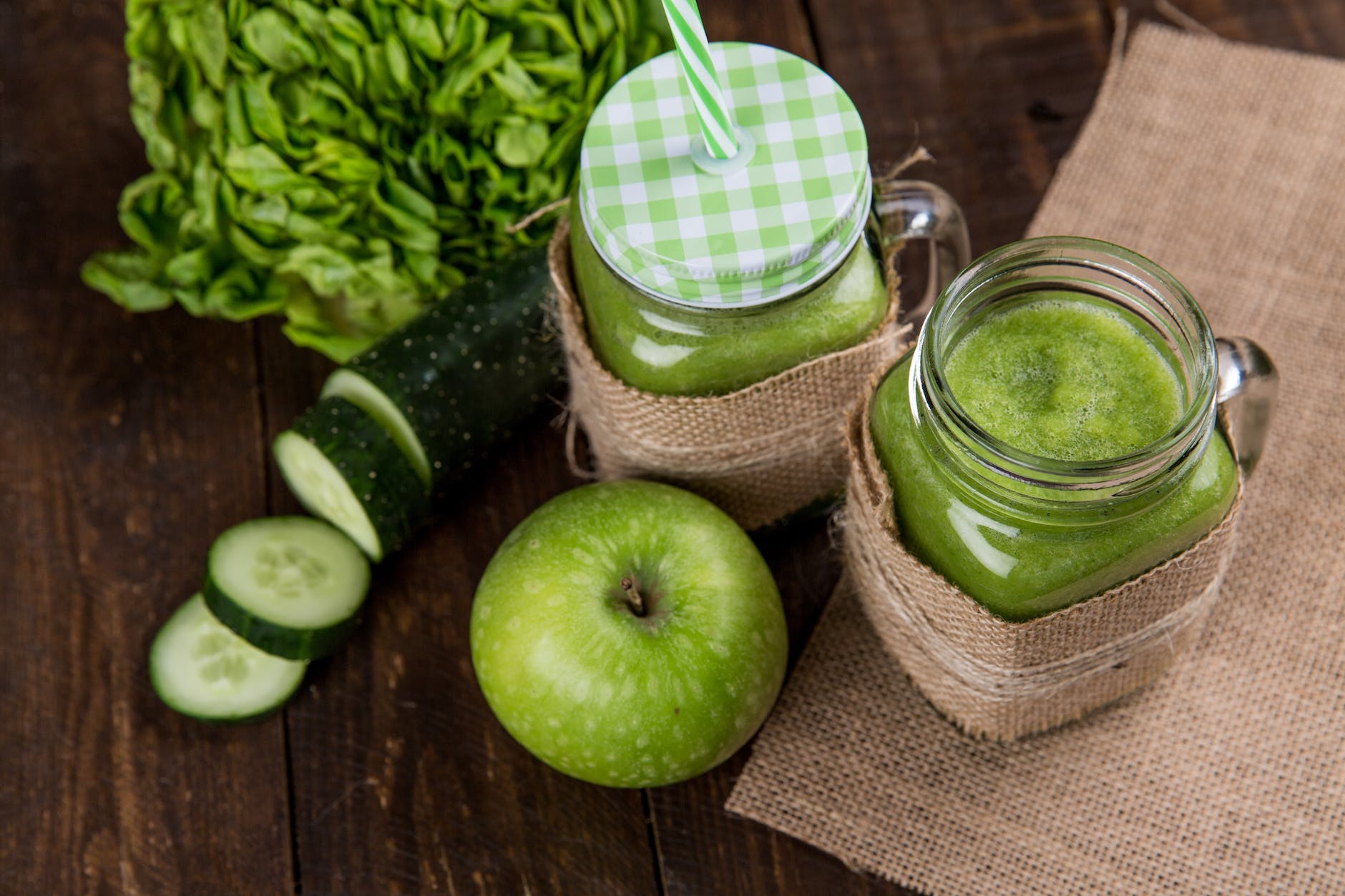As someone who enjoys sipping on a glass of grape juice during breakfast or as an afternoon pick-me-up, I often wonder about how long its freshness lasts after being opened. Grape juice, a popular beverage found in most grocery stores, has a shelf life that is influenced by a variety of factors.
In this article, I will explore the science behind grape juice shelf life, the signs of spoiled grape juice, how to properly store grape juice, and answer common questions about its shelf life.
Grape juice is a delicious and nutritious drink that is often made from Concord grapes. It is a rich source of antioxidants, vitamins, and minerals, making it a popular choice for health-conscious consumers. However, once opened, grape juice can quickly spoil if not stored properly.
As someone who hates wasting food and money, I understand the importance of knowing how long grape juice can last after opening. In this article, I will share my research and personal experience to help you determine how long your grape juice will stay fresh, and how to safely enjoy it for as long as possible.
Key Takeaways
- Unpasteurized homemade grape juice has a short shelf life of only a few days in the fridge.
- Pasteurized store-bought grape juice can last up to a week or two in the fridge after opening.
- Fresh grape juice can last up to a week in the fridge after opening, while concentrated juice can last several months if stored properly.
- Proper storage of grape juice involves keeping it in a cool, dark place in glass jars or bottles with airtight lids to avoid exposure to air, light, and heat.
Understanding Grape Juice Shelf Life
So, how long does grape juice last once you crack open that bottle? Well, the answer depends on several factors, such as whether the juice is homemade or store-bought, how it’s stored, and if it’s been pasteurized or not.
Generally, unpasteurized homemade grape juice will only last for a few days in the refrigerator before it starts to ferment and spoil. On the other hand, pasteurized store-bought grape juice can last for up to a week or two in the fridge, but it’s important to check the expiration date on the bottle.
There are ways to extend the shelf life of your grape juice, such as storing it in an airtight container or freezing it. If you’re going to freeze it, make sure to leave some room at the top of the container for expansion.
Additionally, if you notice any signs of spoilage, such as a sour smell or off taste, it’s best to discard the juice. In the next section, we’ll discuss some of the signs of spoiled grape juice in more detail.
Signs of Spoiled Grape Juice
If you notice any unusual odor or discoloration in your grape juice, it may be spoiled. Grape juice typically has a shelf life of about 7-10 days after opening if it is refrigerated properly. However, if it is not stored in the fridge, it may spoil even faster. Spoiled grape juice may pose health risks if consumed, including stomach discomfort, vomiting, and diarrhea. If you suspect your grape juice has spoiled, it is recommended to dispose of it properly.
Instead of throwing spoiled grape juice away, there are a few ways to reuse it. One idea is to use it in cooking or baking recipes that call for grape juice. Another option is to use it as a natural dye for fabric or other materials. However, it is important to note that using spoiled grape juice for these purposes may not yield the desired results and may still pose health risks if ingested. Proper storage of grape juice can help prevent spoilage and increase its shelf life.
How to Store Grape Juice
Properly storing your favorite grape juice can ensure it stays fresh and delicious for days to come! One of the most important factors to consider when storing grape juice is temperature. Grape juice should be stored in a cool, dark place, such as a refrigerator, to prevent spoilage. The ideal temperature range for storing grape juice is between 32 and 40 degrees Fahrenheit. This temperature range slows down the growth of bacteria and other microorganisms that can cause the juice to spoil.
Another important factor to consider when storing grape juice is the type of container you use. Glass jars or bottles with airtight lids are the best containers for grape juice. Plastic containers can also be used, but they should be made of food-grade plastic and have a tight-fitting lid. Avoid using metal containers as they can react with the grape juice and alter its taste.
By following these simple storage guidelines, you can enjoy your favorite grape juice for longer and avoid spoilage.
When it comes to storing grape juice, temperature and container type are two key factors that affect its shelf life. However, there are other factors to consider, such as exposure to air, light, and heat. In the next section, we’ll discuss these factors and how they can impact the shelf life of your grape juice.
Factors that Affect Grape Juice Shelf Life
Storing grape juice in a cool and dark place in an airtight container is just the beginning, as factors such as exposure to air, light, and heat can also impact its shelf life. Here are some factors that affect grape juice shelf life:
-
Exposure to air: Once grape juice is opened, it starts to oxidize, which can affect its taste and color. To slow down this process, you can transfer the juice to a smaller container to minimize the amount of air in the container.
-
Exposure to light: Light can also affect the taste and color of grape juice, so it’s best to store it in a dark place.
-
Exposure to heat: Heat can cause grape juice to spoil more quickly, so it’s important to store it in a cool place.
-
Quality of grape juice: Some grape juice brands are processed in a way that allows them to have a longer shelf life than others. Look for brands that use high-quality grapes and have a reputation for producing juice with a prolonged shelf life.
Factors affecting taste and color of grape juice can impact its shelf life. Some of the best grape juice brands for prolonged shelf life are Welch’s and Ocean Spray.
Now that we know the factors that affect grape juice shelf life, let’s talk about safety precautions to take when consuming expired grape juice.
Safety Precautions
To avoid any health risks, it’s crucial to dispose of spoiled grape juice that has turned into a murky, moldy liquid with a pungent smell and an unappetizing appearance. Properly disposing of spoiled grape juice is essential to prevent any potential health hazards. When disposing of the spoiled grape juice, it’s important to make sure it is sealed and disposed of in a plastic bag. This will prevent any further contamination or odors from spreading.
To prevent spoilage and extend the shelf life of grape juice, there are a few safety precautions you can take. Always ensure that the grape juice is stored in a cool and dark place, away from direct sunlight. Once opened, the grape juice should be refrigerated and consumed within a week to ensure maximum freshness. Additionally, it’s important to handle the grape juice with clean hands or utensils to prevent any bacteria from entering the bottle. By following these safety precautions, you can prolong the shelf life of your grape juice and prevent any potential health risks.
Moving on to common questions about grape juice shelf life, one may wonder how long grape juice lasts in the fridge.
Common Questions About Grape Juice Shelf Life
Now that we’ve discussed the safety precautions when handling grape juice, let’s move on to answering some common questions about its shelf life.
One of the most frequently asked questions is: how long does grape juice last after opening? The answer depends on several factors, such as whether the juice is fresh or concentrated, whether it’s been refrigerated, and how it’s been stored.
Generally, fresh grape juice can last for up to a week in the refrigerator after opening, while concentrated juice can last for several months if stored properly.
To ensure that your grape juice lasts as long as possible, it’s important to store it in a cool, dark place away from direct sunlight. Once opened, the juice should be kept in the refrigerator and consumed within a few days for best quality. It’s also a good idea to avoid exposing the juice to air, which can cause it to spoil more quickly.
By following these best storage methods, you can extend the shelf life of your grape juice and enjoy it for longer periods of time.
As we wrap up our discussion on grape juice shelf life, let’s take a look at some alternative uses for this versatile beverage.
Alternative Uses for Grape Juice
As I explore the alternative uses for grape juice, I’ve found that it can be a versatile ingredient in cooking and baking. Its sweet and tangy flavor can add a unique twist to various recipes. From marinades to dessert toppings, grape juice can elevate the taste of any dish.
In addition, grape juice can be a great addition to cocktails and other beverages. It provides a natural sweetness and depth to the drink. Plus, grape juice is packed with health and nutritional benefits. It’s an excellent choice for those looking to incorporate more natural and wholesome ingredients into their diet.
Cooking and Baking
You can add grape juice to your baked goods to give them a unique flavor. But be sure to check the expiration date or how long it’s been open, as it can affect the taste and texture of your dish. Grape juice can add a sweet and tangy flavor to your breads, muffins, and cakes. It can also be used as a substitute for other liquids like milk or water.
Here are some recipe ideas and flavor pairings to try with grape juice in your baked goods:
| Recipe | Flavor Pairing |
|---|---|
| Grape Juice Muffins | Cinnamon, nutmeg, and vanilla |
| Grape Juice Bread | Lemon zest and poppy seeds |
| Grape Juice Cake | Cream cheese frosting and chopped walnuts |
Using grape juice in your baked goods can add a unique twist to your usual recipes. But don’t stop there, grape juice can also be used in cocktails and beverages.
Cocktails and Beverages
Indulge in a refreshing and unexpected twist on classic cocktails by adding a splash of grape juice to your favorite drink recipes. The natural sweetness of grape juice makes it a versatile ingredient that can liven up any drink.
From simple mixers like gin and tonic to more creative recipes like the Grapefruit-Grape Juice Cocktail, grape juice can add a unique flavor profile to your drinks.
Popular brands like Welch’s and Ocean Spray offer a variety of grape juice options that can be used in cocktails and other beverages. Whether you prefer white grape juice or the richer flavor of Concord grape juice, there are plenty of options to choose from.
Experiment with different ratios and pairings to find the perfect combination for your taste. And the best part? Grape juice is a healthy alternative to sugary mixers, making it a guilt-free addition to your favorite drinks.
Transitioning into the subsequent section about health and nutritional benefits, incorporating grape juice into your cocktails not only adds a burst of flavor but also offers various health benefits.
Health and Nutritional Benefits
Get ready to feel healthier and more energized with the amazing nutritional benefits that come from incorporating grape juice into your diet. Here are some of the most important nutritional facts and health benefits of grape juice:
-
Rich source of antioxidants: Grape juice is packed with antioxidants that protect your body against damage from harmful free radicals. These antioxidants also help to reduce inflammation and lower your risk of chronic diseases like cancer and heart disease.
-
High in vitamins and minerals: Grape juice is a great source of important vitamins and minerals like vitamin C, vitamin K, and potassium. These nutrients are essential for maintaining a healthy immune system, strong bones, and good heart health.
-
May improve brain function: Some studies have shown that the polyphenols in grape juice may help to improve cognitive function and memory, especially in older adults.
-
May reduce risk of diabetes: Grape juice contains natural sugars that can help to regulate blood sugar levels. Some research has even suggested that grape juice may help to lower your risk of developing type 2 diabetes.
As you can see, grape juice has a lot to offer in terms of nutritional content and health benefits. But don’t just take my word for it – keep reading to learn more about the scientific research that supports these claims.
References
If you’re wondering how long grape juice lasts after opening, it’s best to refer to the expiration date on the bottle or container, but as a rule of thumb, it should be consumed within 7-10 days to ensure maximum freshness. This is because once the bottle is opened, the juice is exposed to air and bacteria, which can cause it to spoil faster. To make sure your grape juice lasts as long as possible, it’s important to store it properly. Keep it in the refrigerator at all times, and make sure the cap or lid is securely fastened. This will help slow down the oxidation process and keep your juice fresher for longer.
If you’re worried about wasting juice, there are a few things you can do to help extend its shelf life. For example, you can freeze leftover juice in an airtight container for up to 8 months. Alternatively, you can use it in recipes that call for grape juice, such as marinades, smoothies, or sorbets. By following these storage tips and expiration dates, you can enjoy fresh and delicious grape juice for longer. Now, let’s take a look at some additional resources that can help you learn more about grape juice and its benefits.
Additional Resources
To expand your knowledge on this topic, you may find it helpful to explore additional resources that delve into the nutritional benefits and uses of this popular beverage.
Grape juice is known for its numerous health benefits, including its high antioxidant content, which helps protect the body against oxidative stress. It also contains vitamins and minerals such as vitamin C, potassium, and iron, and has been found to have positive effects on heart health and blood pressure.
When it comes to grape juice, understanding the different grape varieties used and their unique flavors can also be beneficial. Some popular grape varieties used in grape juice production include Concord, Niagara, and Catawba grapes.
Each variety has its own distinct flavor profile, from the bold, sweet taste of Concord grapes to the milder, slightly tart flavor of Niagara grapes. By exploring the different grape varieties used in grape juice production, you can gain a deeper appreciation for this delicious and nutritious beverage.
Frequently Asked Questions
Is it safe to drink grape juice after the expiration date?
Drinking expired juice poses health risks, including food poisoning. Opt for fresh juice or alternatives. To store opened juice, keep it refrigerated and consume within a few days. Always follow best practices for food safety.
Can you freeze grape juice to extend its shelf life?
Yes, freezing grape juice can extend its shelf life up to 8 months. To freeze, pour juice into freezer-safe containers, leaving room for expansion. Thaw in the refrigerator before using. Try using frozen juice in smoothies or as a base for sorbet.
Does the type of grape affect the shelf life of grape juice?
As a juice expert, I’ve found that the grape variety impact on shelf life of grape juice can vary. Proper storage recommendations, like refrigeration and using an airtight container, can help extend freshness.
Is it necessary to refrigerate grape juice after opening?
After opening grape juice, it’s crucial to store it in the refrigerator to maintain its quality and prolong its shelf life. This is important as juices can easily spoil due to bacterial growth and oxidation.
Can you mix leftover grape juice with other beverages or foods?
I can mix leftover grape juice with other beverages or foods, but it’s important to consider flavor pairings. Grape juice pairs well with lemonade, sparkling water, and smoothies. Keep in mind, mixing may affect shelf life.
Conclusion
In conclusion, it’s crucial to understand the shelf life of grape juice to ensure it’s safe to consume. As discussed, grape juice can last up to 7-10 days in the refrigerator after opening, but this can vary depending on factors like storage conditions, container type, and preservatives.
Interestingly, the FDA conducted a study showing that unpasteurized grape juice has a shorter shelf life than pasteurized juice. Pasteurization kills harmful microorganisms that may cause spoilage, so it’s important to check the label before purchasing grape juice to ensure it’s pasteurized and has a longer shelf life.
Overall, proper storage, handling, and consumption of grape juice can prolong its shelf life. By following the guidelines in this article, you can enjoy your grape juice for a longer period while ensuring it’s safe to consume.
Ilana has been a vegan for over 10 years. She originally made the switch for health reasons, but soon found herself becoming more and more passionate about the ethical and environmental implications of a vegan lifestyle. Ilana is the author of The Graceful Kitchen, a blog all about veganism. She loves to cook up delicious and nutritious vegan meals, and share her recipes with others who are interested in leading a cruelty-free life. Ilana is also a strong advocate for using whole foods as the foundation of a healthy diet, and believes that going vegan is one of the best ways to achieve this.
